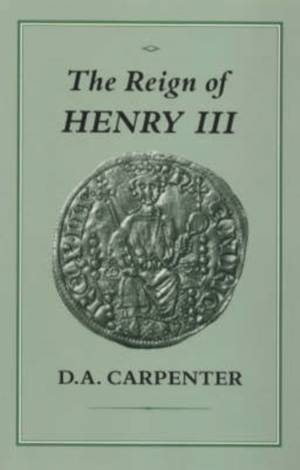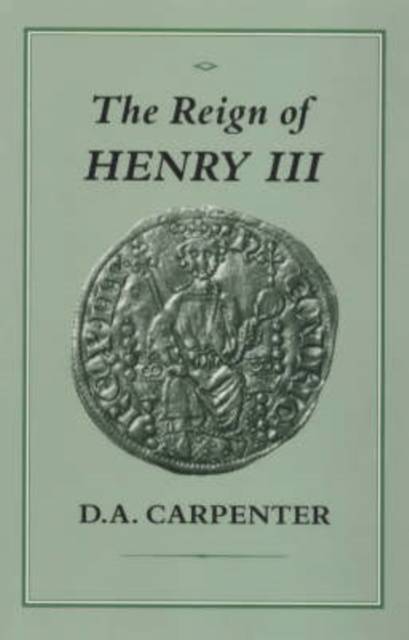
- Afhalen na 1 uur in een winkel met voorraad
- Gratis thuislevering in België vanaf € 30
- Ruim aanbod met 7 miljoen producten
- Afhalen na 1 uur in een winkel met voorraad
- Gratis thuislevering in België vanaf € 30
- Ruim aanbod met 7 miljoen producten
Zoeken
Omschrijving
The long reign of Henry III (1216-1272) was one of the most significan in English history. It was the implantation of the Magna Carta into political life, the development of parliament and the rise of English national feeling. Reforms in 1258 reduced the king to a cipher and led to a civil war which culminated in the rule of Simon de Montfort: revolutionary events which had no parallel until the 1640's. In recent years, D.A. Carpenter has played a leading part in this reinterpretation of this momentus and exciting period. The Reign of Henry III contains important new pieces on the dating and making of Magna Carta; on justice and jurisdiction under John and Henry III; on the beginnings of parliament; on Matthew Paris and Henry III's speech at the exchequer in 1256; and on the burial of Henry III, the regalia and royal ideology. The volume also discusses the whole nature of Henry III's personal rule, the immediate causes of the revolution of 1258, the rise of Simon de Montfort, the explosive development of English national feeling, the social and economic position of the gentry, the role of peasants in politics, and Henry III's relations with both the Tower of London and the Cosmati work at Westminster Abbey. This wide-ranging volume of essays will be indsispensable for students of English medieval history.
Specificaties
Betrokkenen
- Auteur(s):
- Uitgeverij:
Inhoud
- Aantal bladzijden:
- 420
- Taal:
- Engels
Eigenschappen
- Productcode (EAN):
- 9781852851378
- Verschijningsdatum:
- 17/10/2003
- Uitvoering:
- Hardcover
- Formaat:
- Genaaid
- Afmetingen:
- 156 mm x 234 mm
- Gewicht:
- 861 g

Alleen bij Standaard Boekhandel
+ 915 punten op je klantenkaart van Standaard Boekhandel
Beoordelingen
We publiceren alleen reviews die voldoen aan de voorwaarden voor reviews. Bekijk onze voorwaarden voor reviews.








